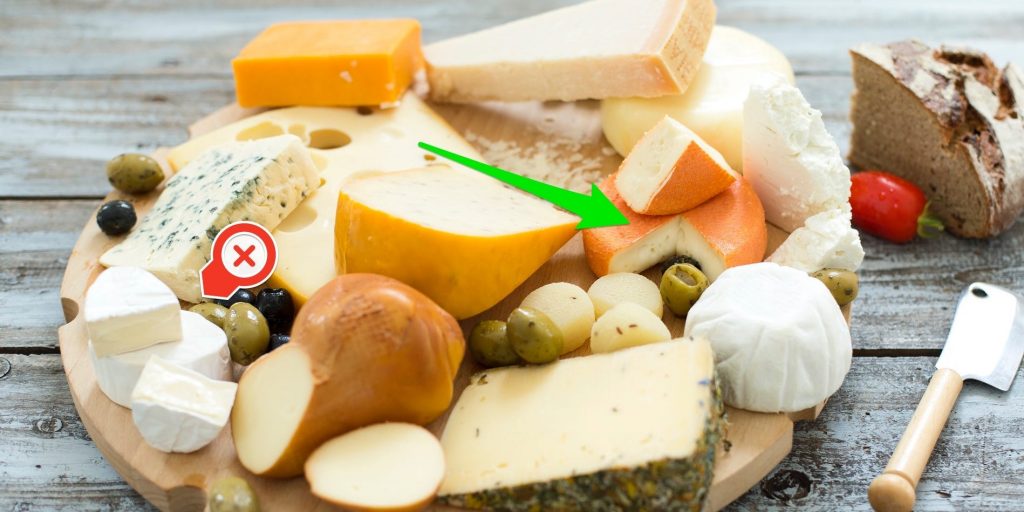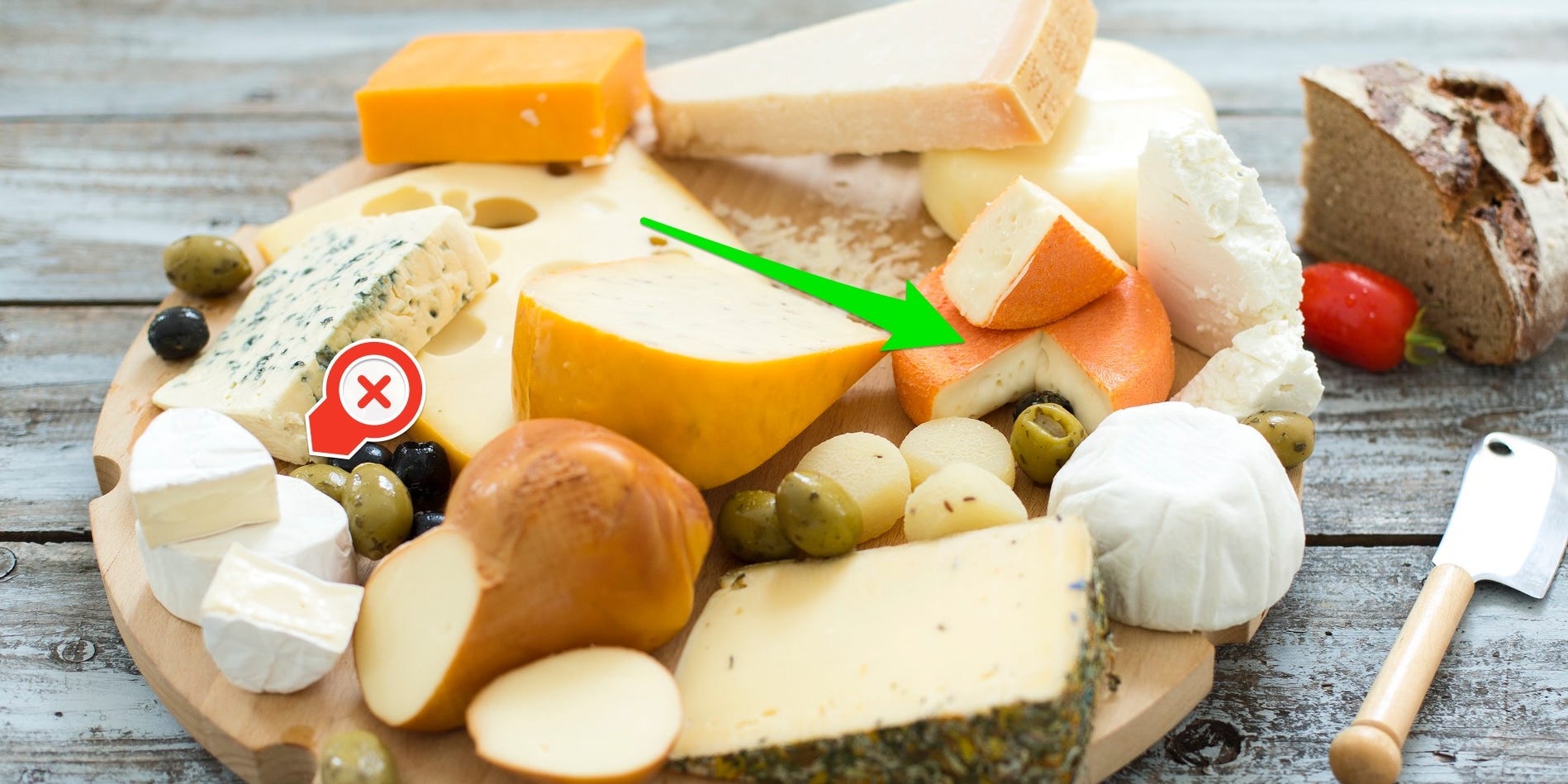
Westend61/Getty Images
- Some of the healthiest cheeses are feta and goat cheese, which are better for lactose intolerance.
- Cottage cheese and ricotta have more than 11 grams of muscle-building protein in a single serving.
- Swiss cheese is naturally lower in sodium, so it is a good option for people with hypertension.
- Visit Insider's Health Reference library for more advice.
Eating cheese can be part of a healthy diet. But some cheeses, like jarred queso, are high in sodium and preservatives- plus, they contain very few beneficial nutrients like protein.
There are plenty of healthier cheeses out there that can provide you with essential vitamins and minerals for a balanced, equally delicious, diet.
Here are 10 kinds of cheese that are on the healthier side.
1. Part-skim mozzarella cheese

Brett Taylor/Getty Images
Weinandy says part-skim mozzarella cheese has a lower amount of saturated fat and sodium compared to many other kinds of cheese, with about 2.9 grams of saturated fat and 175 milligrams of sodium in a one-ounce serving. By comparison brie, another soft cheese has 4.9 grams of saturated fat – almost double.
Additionally, mozzarella is soft, mild in flavor and versatile, says Kathy Siegel, MS, RDN, a nutrition consultant and author of Eating Clean Vegetarian Cookbook.
A one-ounce serving of part-skim mozzarella cheese contains:
- Calories: 72
- Protein: 6.9 grams
- Sodium: 175 milligrams
- Carbs: 0.8 grams
- Saturated fat: 2.9 grams
- Calcium: 222 milligrams
2. Feta cheese
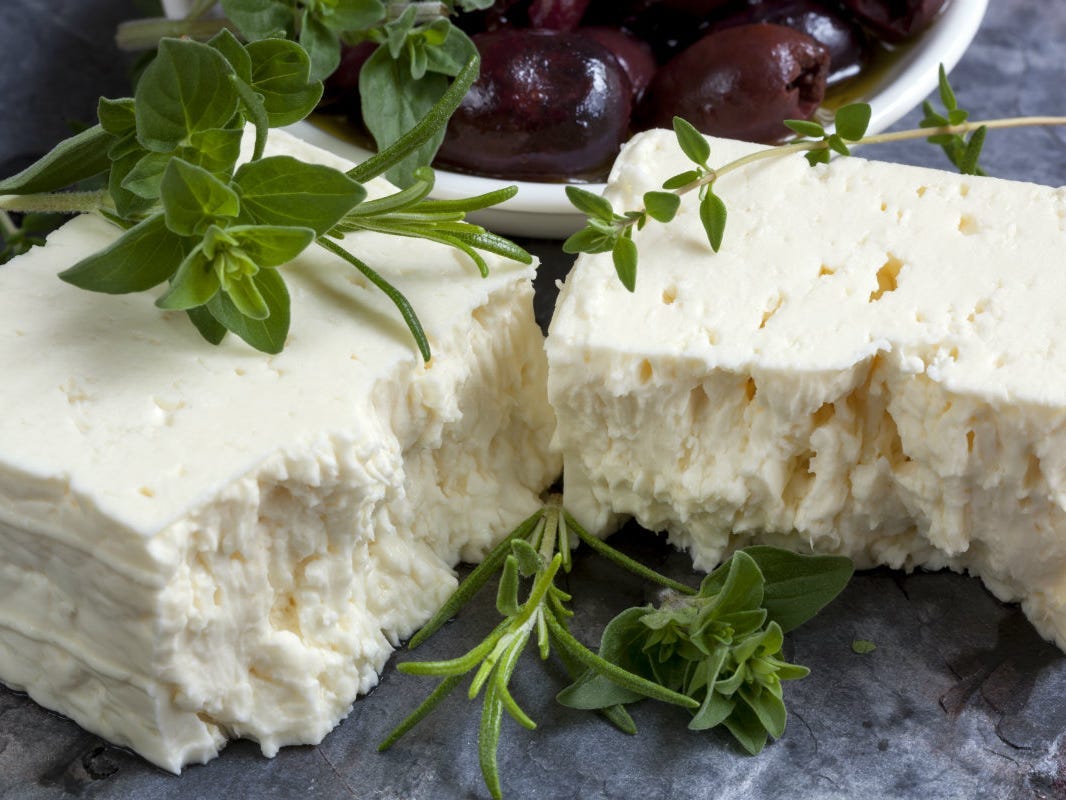
Robyn Mackenzie/ Shutterstock
Feta cheese is traditionally made from goat or sheep milk, says Weinandy. This is beneficial for people who are lactose intolerant because feta lacks casein - the major protein in cow's milk that lactose intolerants can't easily digest.
Additionally, Siegel says feta is rich in the mineral phosphorus which is great for healthy, strong bones and teeth. A one-ounce serving of feta contains 95.5 mg of phosphorous, which is about 15% of your daily dietary value.
A one-ounce serving of feta cheese contains:
- Calories: 75.1
- Protein: 4.0 grams
- Sodium: 323 milligrams
- Carbs: 1.1 grams
- Saturated fat: 3.77 grams
- Calcium: 140 milligrams
3. Low fat cottage cheese
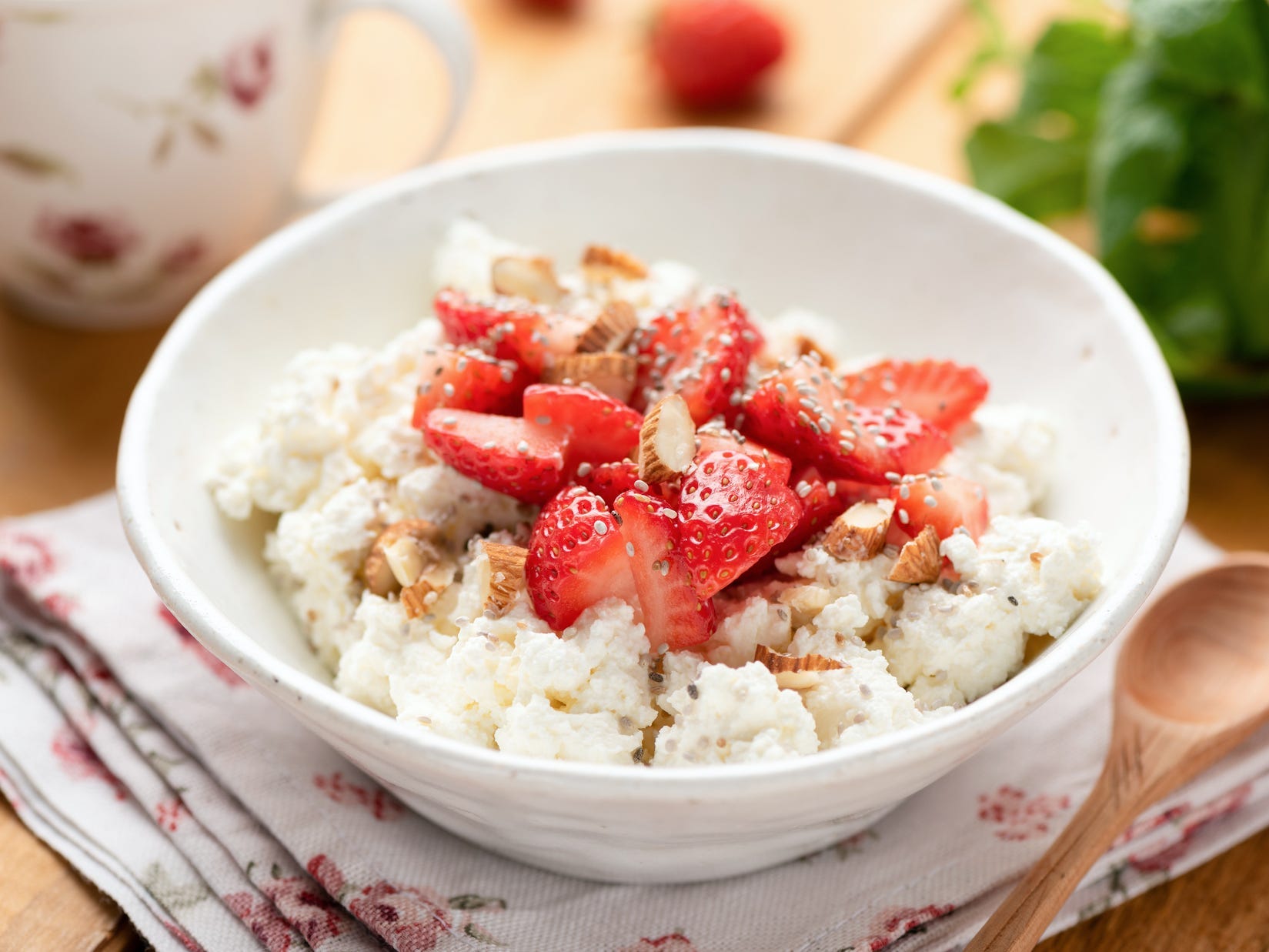
Arx0nt/ Getty Images
Although cottage cheese isn't as high in calcium as some other cheeses, it's a great source of protein, says Weinandy. This can be beneficial for vegetarians who aren't getting protein from other sources, such as meat.
Opting for a low-fat version is preferable if you're watching your weight and following a heart-healthy diet, says Weinandy.
Also, you can easily blend up cottage cheese and add it to other foods for a protein boost. Weinandy says cottage cheese can be blended into smoothies, pancakes, or muffins.
A 100 gram serving (about ½ cup) of low fat cottage cheese contains:
- Calories: 80
- Protein: 11.5 grams
- Sodium: 407 milligrams
- Carbs: 5.3 grams
- Saturated fat: 0.44 grams
- Calcium: 80 milligrams
4. Goat cheese
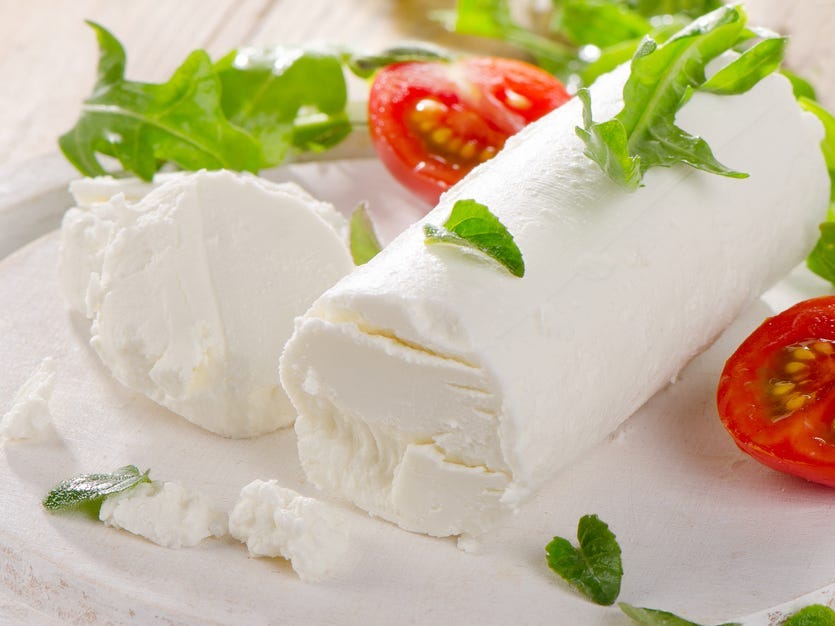
bitt24/Shutterstock
Goat cheese is a soft cheese with a mild and neutral flavor that can pair well with either sweet or savory foods, says Siegel. Additionally, she says goat milk has less lactose than cow's milk, so it's better tolerated by people with lactose intolerance.
A one-ounce serving of goat cheese contains
- Calories: 80.1
- Protein: 4 grams
- Sodium: 75 milligrams
- Carbs: 4 grams
- Saturated fat: 3.5 grams
- Calcium: 19.9 milligrams
5. Ricotta cheese

Anshu Ajitsaria/Getty Images
Ricotta cheese is made from whey protein, which contains amino acids that are beneficial for muscle health and growth.
"Ricotta is produced by heating milk until the curds and whey separate, and then reheating the whey again to create a creamy, grainy cheese," says Siegel.
A 100 gram serving of ricotta cheese contains:
- Calories: 97
- Protein: 11.29 grams
- Sodium: 242 milligrams
- Carbs: 4.84 grams
- Saturated fat: 3.23 grams
- Calcium: 161 milligrams
6. Swiss cheese

Copyright Eric Reichbaum/Getty Images
Compared to other cheeses, Swiss is naturally lower in sodium, Siegel says, which makes it a good choice for people with hypertension or at risk of heart disease who are watching their sodium intake. According to the FDA, adults should limit their sodium intake to less than 2,300 mg per day.
A one-ounce serving of Swiss cheese contains:
- Calories: 110
- Protein: 9 grams
- Sodium: 45.1 milligrams
- Carbs: 0 grams
- Saturated fat: 5 grams
- Calcium: 300 milligrams
7. Cheddar cheese
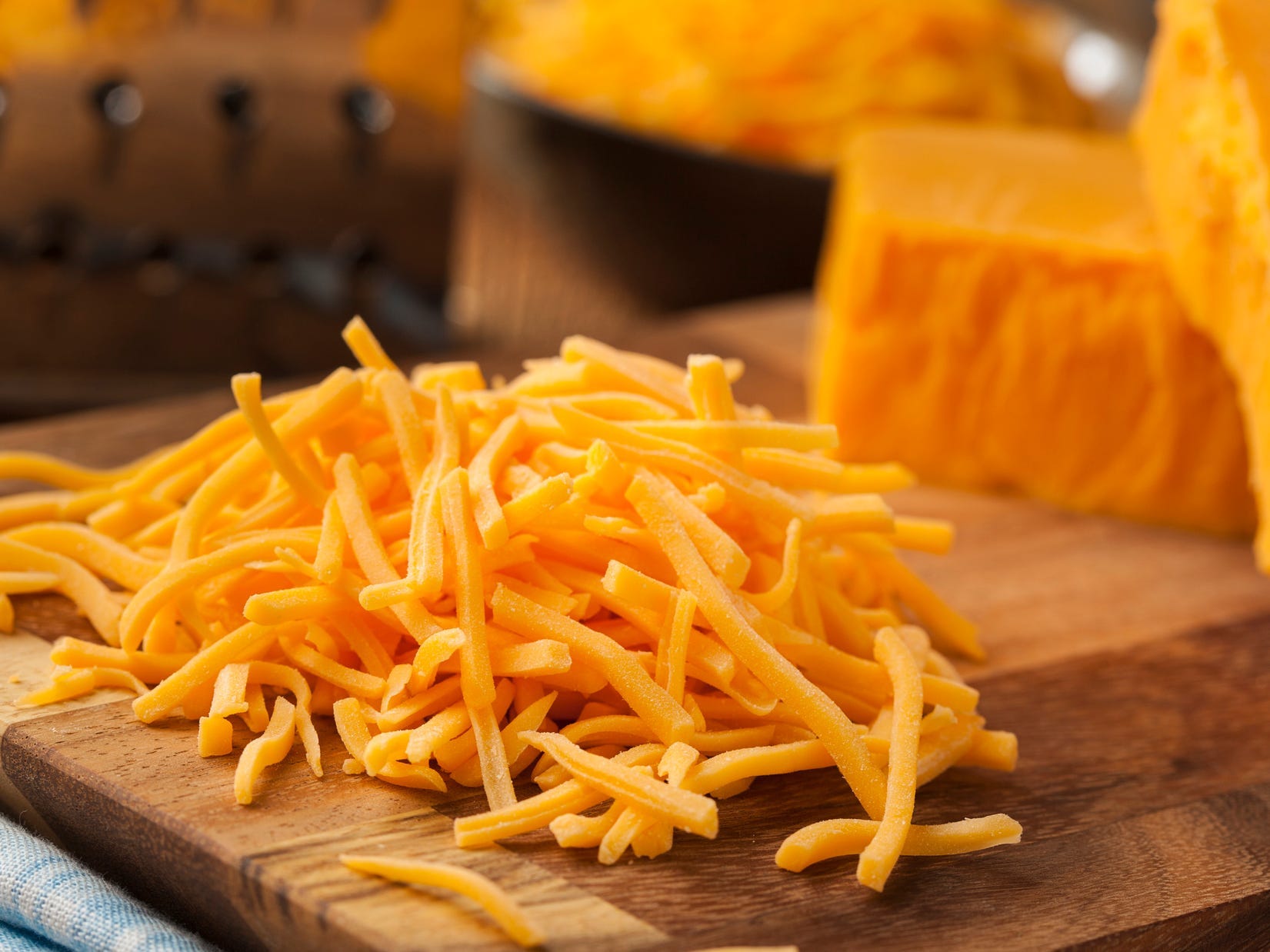
bhofack2/Getty Images
Cheddar is usually naturally aged, says Siegel. This is beneficial for those sensitive to lactose since the longer a cheese is aged, the more the remaining lactose breaks down.
Plus, cheddar is high in calcium, with about 15% of your daily value in a one-ounce serving. Calcium is crucial for healthy bones.
A one-ounce serving of cheddar cheese contains:
- Calories: 120
- Protein: 7 grams
- Sodium: 190 milligrams
- Carbs: 0 grams
- Saturated fat: 6 grams
- Calcium: 200 milligrams
8. Gouda cheese

bonchan/Getty Images
Gouda is semi-hard and aged, with a sweet and nutty taste. It is typically made from unpasteurized milk, which means it is packed with probiotics, Siegel says.
Probiotics are a type of "good" bacteria that can promote a healthy gut by balancing the good and bad bacteria in the gut, which can.
A one-ounce serving of gouda cheese contains:
- Calories: 101
- Protein: 7.06 grams
- Sodium: 232 milligrams
- Carbs: .63 grams
- Saturated fat: 5 grams
- Calcium: 198 milligrams
9. Parmesan Cheese
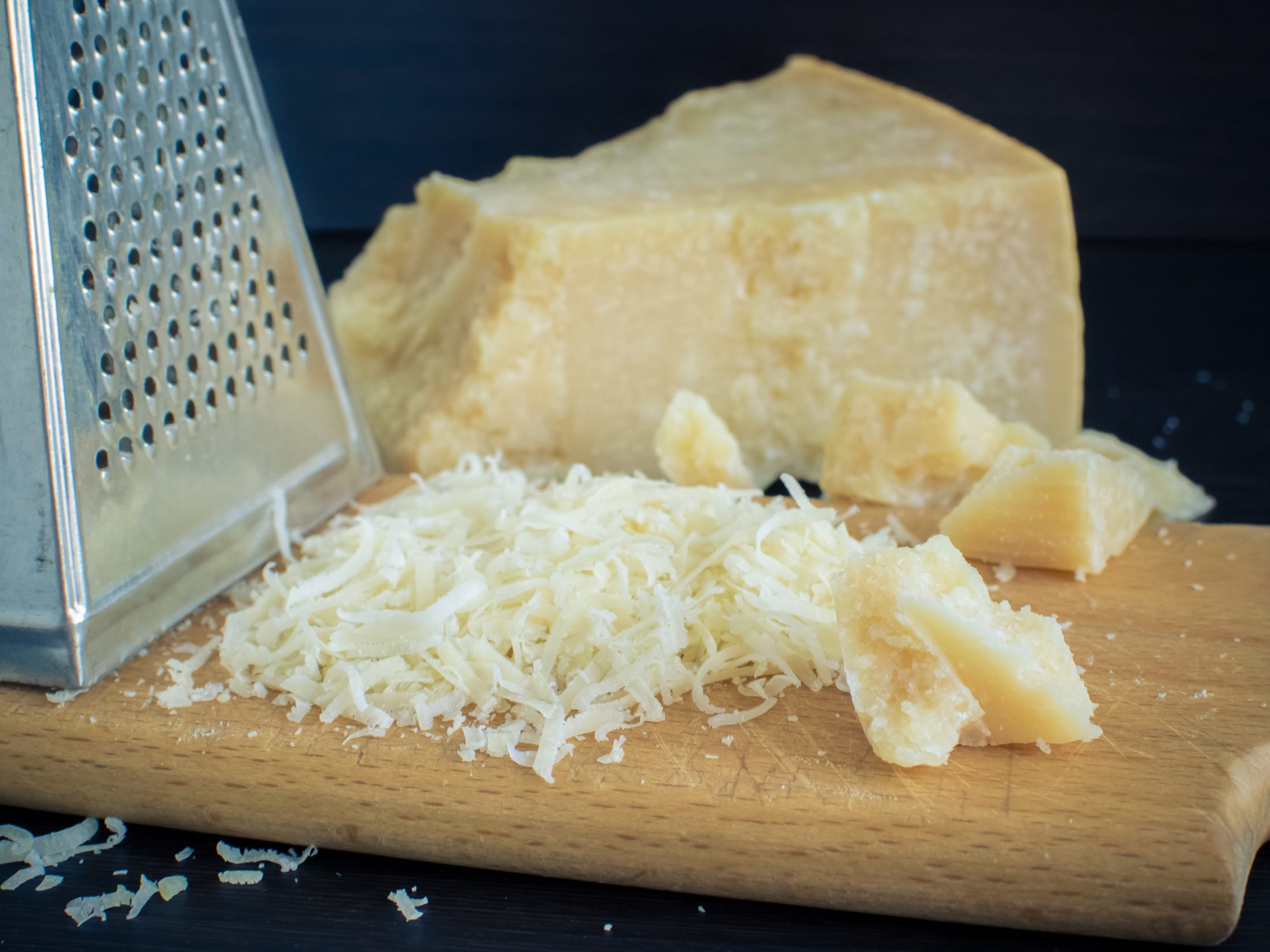
iStock
Parmesan is a hard cheese that is typically served grated over dishes such as pasta. It's usually consumed in very small portions, as a topping on foods.
Siegel says the main benefits of parmesan are that it's packed with calcium and protein. Plus, a small amount of parmesan cheese packs a lot of flavor, so you'll end up eating few calories for all the flavor that you get, says Siegal.
A one-tablespoon serving of parmesan cheese contains:
- Calories: 20
- Protein: 2 grams
- Sodium: 55 milligrams
- Carbs: 0 grams
- Saturated fat: 0.5 grams
- Calcium: 60 milligrams
10. Cashew cheese
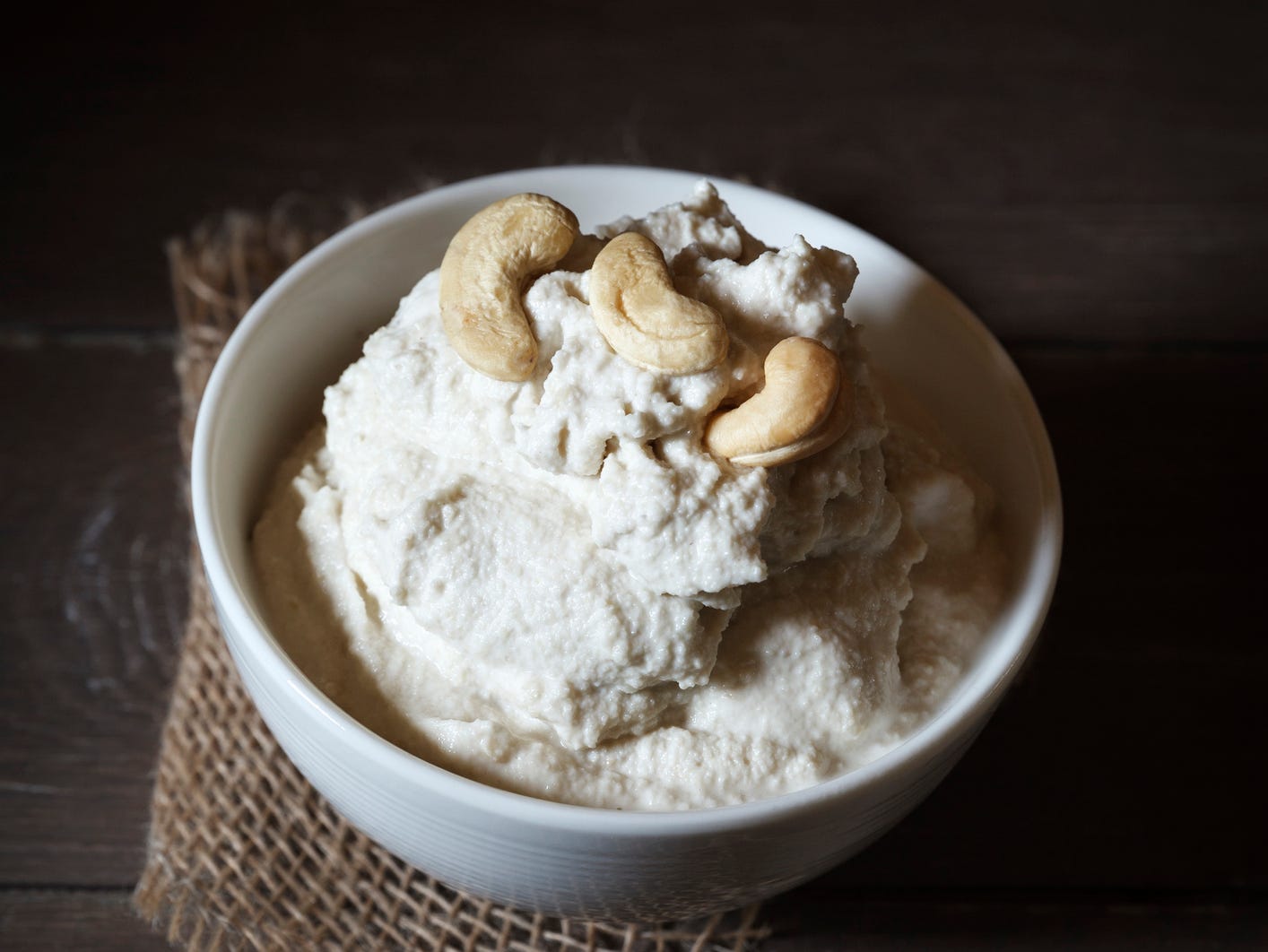
Westend61/Getty Images
Cashew cheese is dairy-free and safe to consume for people who are lactose intolerant or choose to avoid animal products. Siegel says cashew cheese is one of the more popular nut cheeses due to the creamy consistency it produces.
The "cheese" is made from processed cashew nuts, creating an end product that's high in iron, potassium, and fiber, comparable to dairy cheese, Siegel says.
A one-ounce serving of cashew cheese contains:
- Calories: 90
- Protein: 3 grams
- Sodium: 130 milligrams
- Carbs: 5 grams
- Saturated fat: 1.5 grams
- Calcium: 20 milligrams
Insider's takeaway
When it comes to nutrition, the key is having everything in moderation, and cheese is no exception. Limit your portions of cheese to roughly an ounce a day and you'll be on track to maintaining a balanced (and delicious) diet.
If you need help with planning out your meals and snacks, don't hesitate to reach out to a dietitian for advice.
